In the relentless pursuit of Valorant mastery, players dedicate countless hours to perfecting crosshair placement, optimizing frame rates, and refining mechanical skills. Yet one critical performance factor often remains in the shadows—network latency, commonly known as ping. This comprehensive guide reveals how ping fundamentally impacts your competitive performance and provides actionable strategies to achieve optimal network conditions for peak gameplay.
Understanding Network Latency
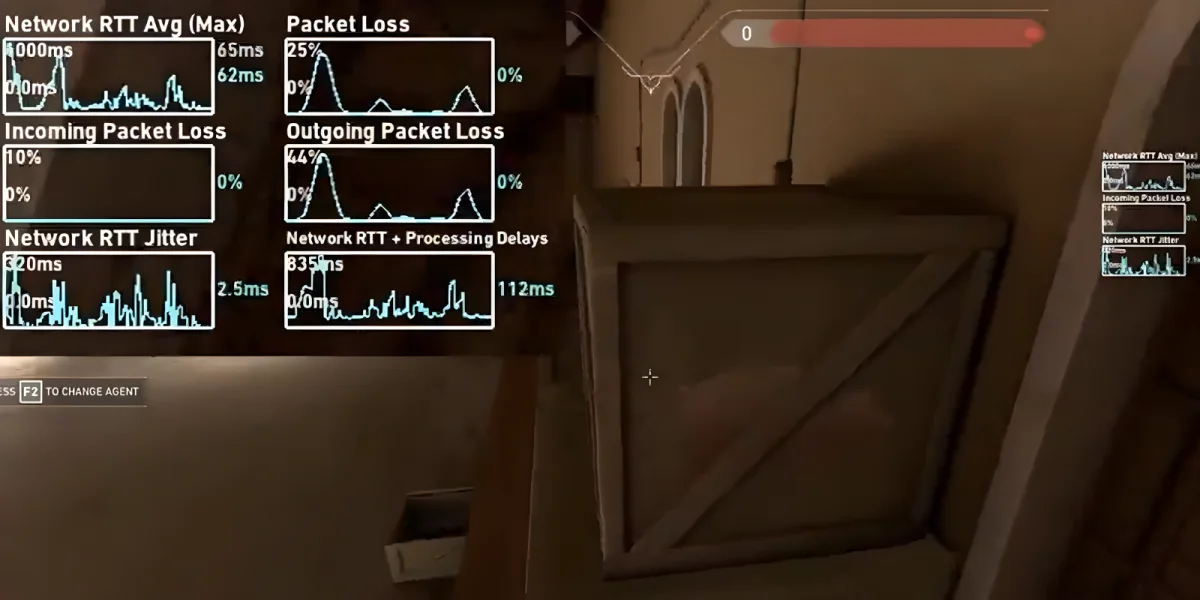
Network ping represents the fundamental communication speed between your gaming system and Riot Games' Valorant servers. Measured in milliseconds (ms), ping quantifies the complete round-trip time required for data packets to travel from your computer to the game server and return with a response.
Think of ping as the digital conversation speed between you and the game world. When you execute any action—whether firing a weapon, activating an ability, or moving your character—that input must travel across the internet infrastructure to reach Valorant's servers, get processed, and send confirmation back to your system. Lower ping values indicate faster communication, creating the responsive, real-time experience that competitive play demands.
Impact on Competitive Performance
Enhanced Reaction Speed and Combat Responsiveness
Network latency directly influences your ability to respond to dynamic combat situations. With optimized ping, your reactions to enemy movements, incoming projectiles, and utility deployments translate immediately into game actions. This responsiveness becomes crucial during intense duels where split-second timing determines victory or elimination.
Lower ping ensures your weapon fire registers with minimal delay, providing the accuracy and timing precision essential for securing eliminations in head-to-head engagements. Every millisecond of reduced latency translates to a competitive advantage in these critical moments.
Minimizing Input Lag for Precise Control
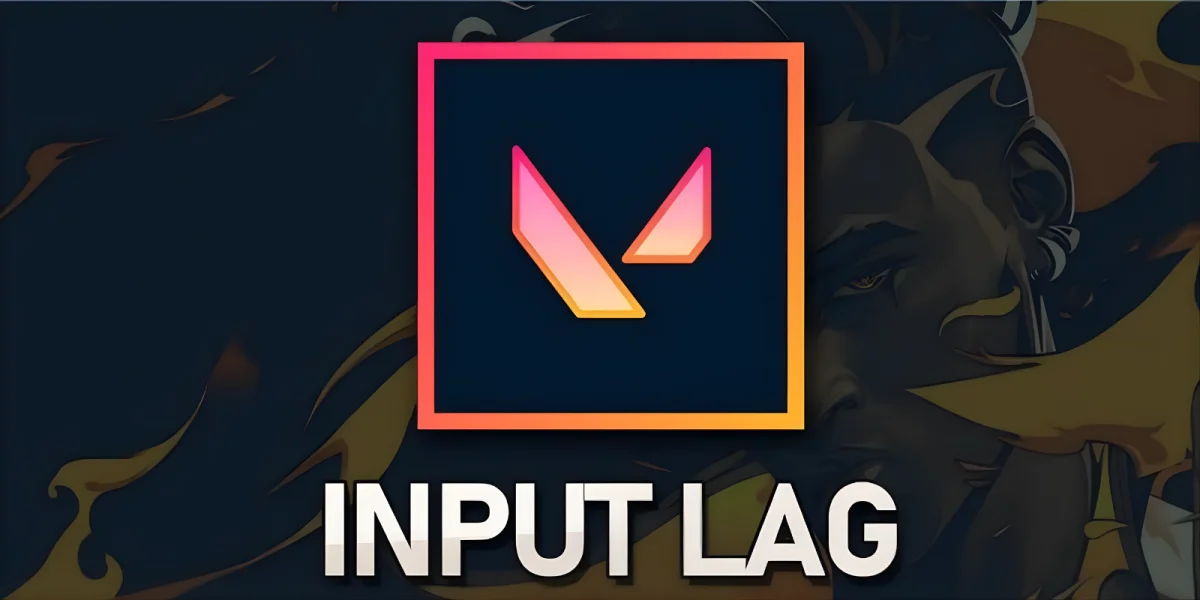
Input lag represents one of ping's most noticeable effects on gameplay quality. High latency creates a disconnect between your physical inputs and their corresponding in-game actions. When you press a key to fire your weapon, elevated ping introduces a delay before that action manifests in the game world.
This delay disrupts your natural timing and muscle memory, making precise aim adjustments and rapid combat sequences feel unnatural and unreliable. Reducing ping eliminates this disconnect, ensuring your inputs translate immediately into responsive character actions.
Achieving Fluid Movement Mechanics
Character movement in Valorant requires precise timing for advanced techniques like jiggle peeking, counter-strafing, and angle clearing. Optimal ping enables smooth, natural movement that feels intuitive and responsive. You can execute complex movement combinations, dodge incoming fire, and peek corners with confidence that your character responds exactly when intended.
Accurate Game State Information
Low ping ensures you receive the most current information about the dynamic game environment. Enemy positions, ability effects, and environmental changes update in real-time, providing you with accurate situational awareness for tactical decision-making.
Elevated ping can cause desynchronization issues where your view of the game world lags behind the actual server state. This creates scenarios where enemies appear in incorrect positions or where you experience "ghosting" effects that compromise your ability to make informed strategic choices.
Optimal Ping Ranges
Performance at Different Ping Levels
Exceptional Performance Zone: 0-30 Milliseconds
This represents the pinnacle of network performance for Valorant. Within this range, latency becomes virtually imperceptible, providing the most responsive gaming experience possible. Players operating in this zone enjoy immediate input registration, seamless movement mechanics, and real-time game state updates that enable peak competitive performance.
High-Performance Zone: 30-50 Milliseconds
This range delivers excellent gameplay quality that most competitive players find highly satisfactory. While slightly higher than the optimal zone, latency remains minimal enough to support professional-level play without noticeable disadvantages. The vast majority of players will find this range perfectly suitable for ranked competition and tournament play.
Acceptable Performance Zone: 50-80 Milliseconds
Players in this range can still enjoy solid gameplay, though some may begin to notice subtle delays in responsiveness. While competitive play remains viable, you might occasionally experience minor timing discrepancies that could impact performance in the most demanding situations.
Problematic Performance Zone: 80-120 Milliseconds
This range marks the beginning of noticeable performance degradation. Latency becomes apparent through delayed input registration, movement stuttering, and timing inconsistencies that can significantly impact competitive effectiveness. Players in this range may struggle with precise aim adjustments and rapid combat sequences.
Unplayable Range: 120+ Milliseconds
Beyond this threshold, Valorant becomes extremely challenging to play competitively. Severe delays affect all aspects of gameplay, from basic movement to weapon firing, creating frustrating experiences that prevent effective competition. Players experiencing latency in this range should prioritize network optimization before engaging in ranked play.
Factors Influencing Network Latency
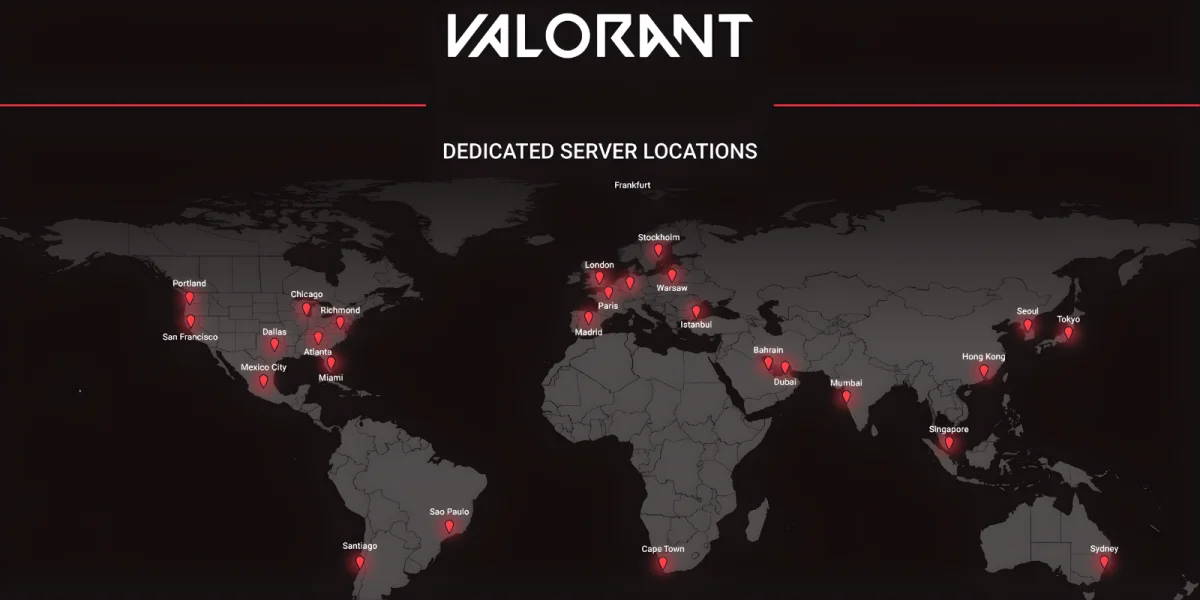
Geographic Distance to Server Infrastructure
The physical distance between your location and Riot Games' server facilities directly impacts your baseline ping. Data packets must traverse internet infrastructure over potentially vast geographic distances, with each routing hop adding incremental delay. Players located closer to server clusters naturally experience lower latency, while those in remote regions face inherent disadvantages.
Understanding your region's server locations helps set realistic expectations for achievable ping ranges and guides decisions about internet service optimization.
Internet Connection Quality and Speed
Your internet service provider's infrastructure quality significantly affects ping performance. Connection speed, while important, represents just one factor—connection stability, routing efficiency, and network infrastructure quality all contribute to overall latency performance.
Network Congestion and Traffic Load
Internet traffic behaves similarly to highway traffic—congestion creates delays that increase ping. During peak usage hours when many users access bandwidth-intensive services, network congestion can elevate ping substantially.
Local network congestion also affects performance when multiple devices in your household compete for bandwidth through streaming, downloads, or other online activities.
Connection Method: Wireless vs. Wired Infrastructure
Wi-Fi connections introduce additional latency and stability challenges compared to direct Ethernet connections. Wireless signals must navigate radio frequency interference, compete with other wireless devices, and process additional protocol overhead that increases ping.
Wired Ethernet connections provide the most stable, low-latency pathway between your gaming system and router, eliminating wireless-related delays and interference issues.
Understanding Packet Loss
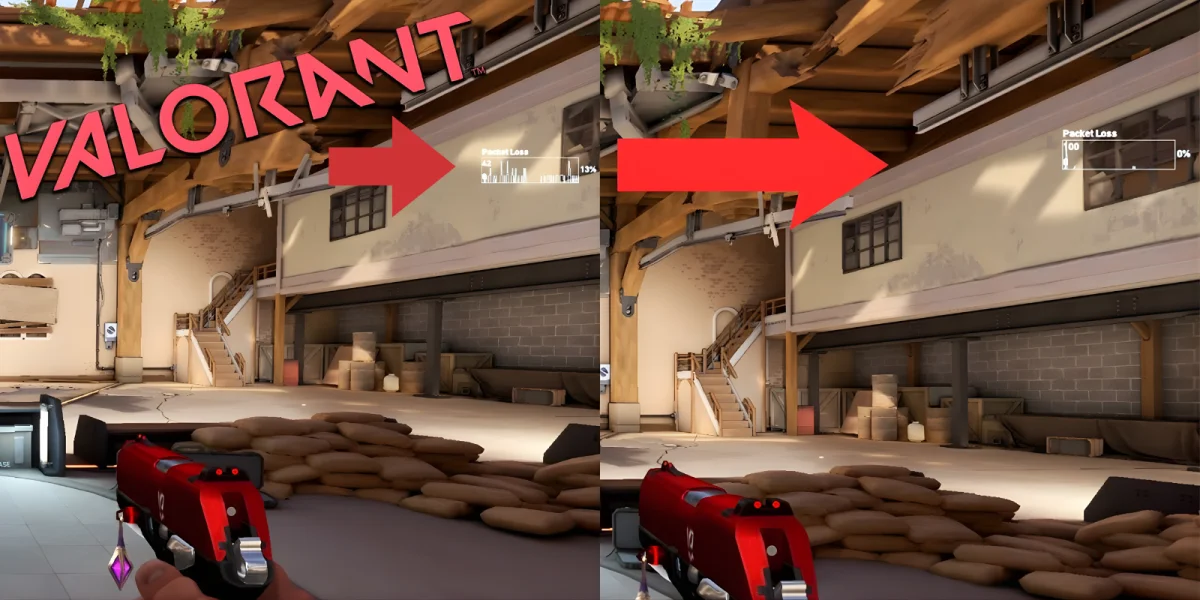
Packet loss represents a critical network issue distinct from ping that can devastate gameplay quality. This phenomenon occurs when data packets fail to reach their destination, requiring retransmission that creates stuttering, teleporting effects, and unpredictable game behavior.
Measured as a percentage of total packets lost, packet loss can result from network congestion, hardware malfunctions, or insufficient internet infrastructure. Even small amounts of packet loss can create jarring gameplay disruptions that compromise competitive performance.
Ping Optimization Strategies
Implement Direct Ethernet Connectivity
Transitioning from wireless to wired Ethernet connection represents the single most effective improvement most players can make. Ethernet eliminates wireless interference, reduces latency variability, and provides the most stable connection possible between your gaming system and network infrastructure.
Optimize Internet Service Configuration
Evaluate your current internet service plan's performance characteristics beyond raw speed. Contact your internet service provider to discuss gaming-optimized packages that may include better routing, reduced latency pathways, or prioritized traffic handling for gaming applications.
Consider upgrading to fiber-optic internet services where available, as these typically provide superior latency performance compared to cable or DSL alternatives.
Eliminate Background Network Competition
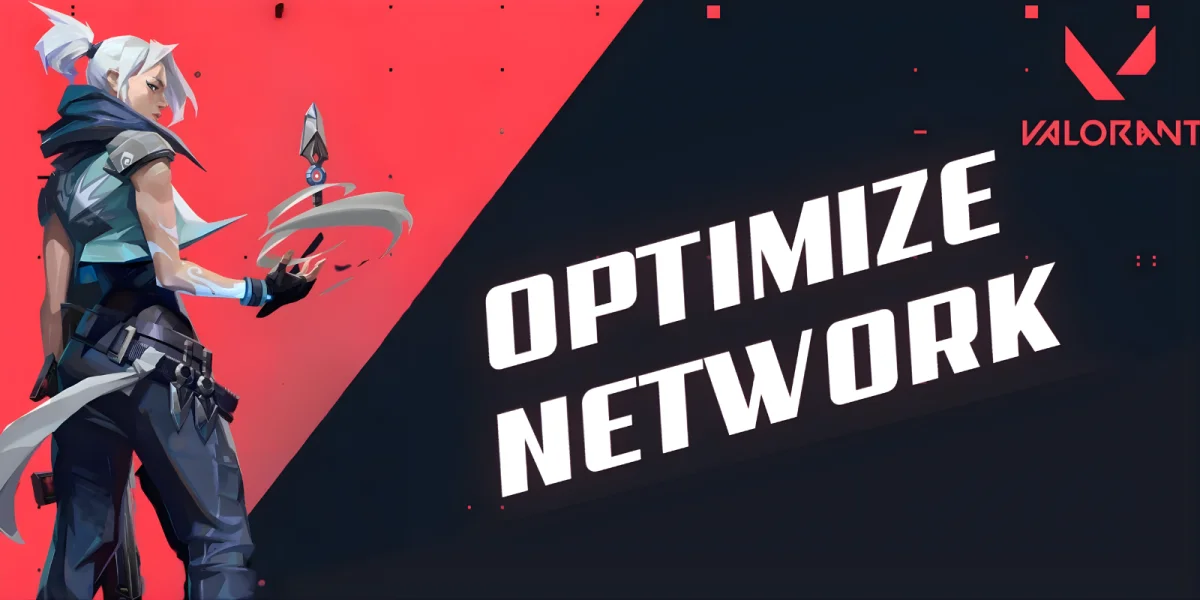
Background applications can consume significant bandwidth and processing resources that elevate ping. Close unnecessary programs, pause automatic updates, and disable cloud synchronization services during gaming sessions.
Pay particular attention to streaming services, file downloads, and software updates that can create substantial network traffic.
Reduce Household Network Load
Coordinate with household members to minimize bandwidth-intensive activities during your competitive gaming sessions. Streaming video services, large file downloads, and other high-bandwidth activities can significantly impact your ping performance.
Network Performance vs Skill Development
While optimizing ping provides measurable competitive advantages, mechanical skill, game sense, and strategic understanding remain the primary determinants of Valorant success. A player with exceptional aim, positioning, and tactical awareness can often overcome moderate ping disadvantages through superior gameplay.
However, network optimization creates the foundation for your skills to express themselves fully. Eliminating technical barriers allows your training and practice to translate directly into competitive performance without network-related interference.
- Immediate input registration
- Consistent gameplay experience
- Improved reaction time potential
- Better competitive reliability
- Mechanical skill fundamentals
- Game sense and positioning
- Strategic understanding
- Team communication abilities
The goal is creating optimal conditions where your mechanical abilities, strategic thinking, and competitive instincts can operate without technical limitations constraining your potential.
Building Your Competitive Foundation
Network optimization represents an essential but often overlooked aspect of competitive Valorant preparation. While ping improvements won't transform gameplay overnight, they remove technical barriers that can prevent your skills from reaching their full potential.
Implementing these optimization strategies creates the responsive, stable gaming environment that competitive play demands. Combined with dedicated practice, strategic study, and mechanical skill development, optimized network performance becomes part of the comprehensive approach required for Valorant mastery.
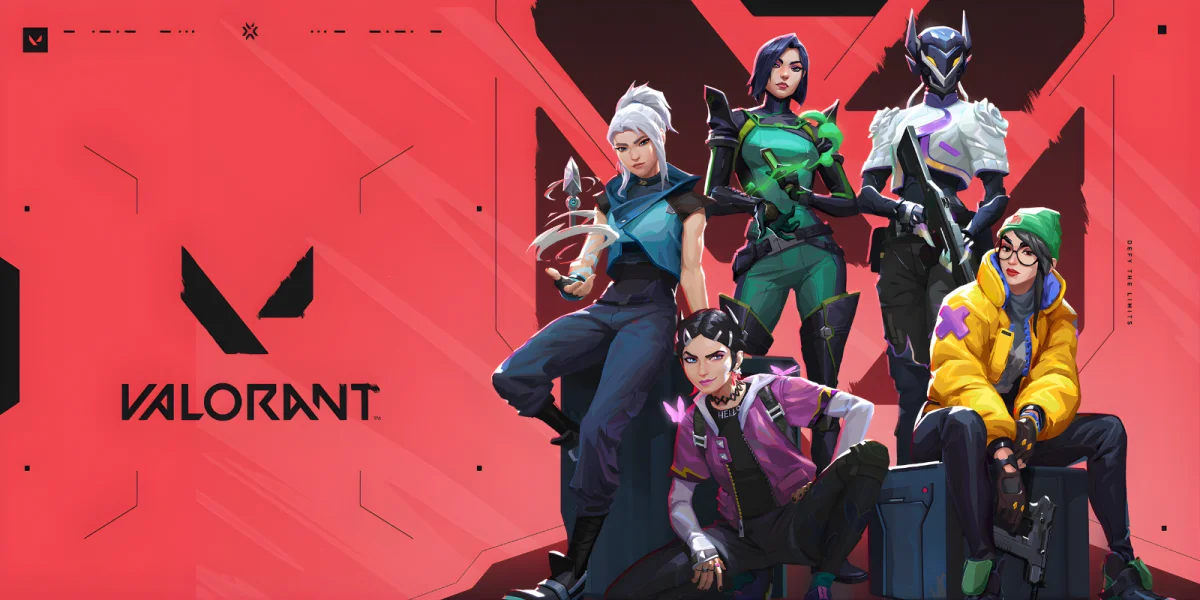
"Remember that every competitive advantage matters in Valorant's demanding environment. Network optimization, mechanical practice, and strategic development work together to create the complete competitive package that enables sustained improvement and peak performance."

